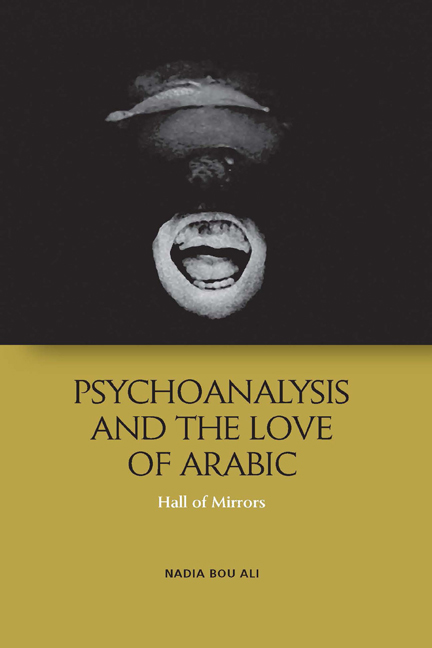Book contents
- Frontmatter
- Contents
- Acknowledgements
- Dedication
- Introduction: The Mirror of Language
- 1 Literature as a Ruthless Excavator of Culture: From the Literary Mode of Being to Lituratterre
- 2 Why is There Lalangue Rather than Nothing? Love of Lugha and Lalangue
- 3 Piercing the Bull’s Eye: The Sexual (Non-)Relation
- 4 A Liberal Psycho-theology
- Conclusion: The Abstractions of Homo Economicus: Now a Stomach, Now an Anus 161
- Notes
- Index
4 - A Liberal Psycho-theology
Published online by Cambridge University Press: 17 September 2020
- Frontmatter
- Contents
- Acknowledgements
- Dedication
- Introduction: The Mirror of Language
- 1 Literature as a Ruthless Excavator of Culture: From the Literary Mode of Being to Lituratterre
- 2 Why is There Lalangue Rather than Nothing? Love of Lugha and Lalangue
- 3 Piercing the Bull’s Eye: The Sexual (Non-)Relation
- 4 A Liberal Psycho-theology
- Conclusion: The Abstractions of Homo Economicus: Now a Stomach, Now an Anus 161
- Notes
- Index
Summary
By the late nineteenth century, the Ottoman Empire had begun to sow the seeds of its tanzimat reforms that were largely liberal in nature and had transformative implications for property rights, legislation and governance, as well as taxation and military conscription. The peasant uprisings of Mount Lebanon (1820s, 1830s, 1841, 1845 and 1860) occurred in the context of drastic land reforms and the encroachment of private property and industrial capital on the premodern tax-farming system, as well the institutionalisation of waged labour. This was concomitant with the rise of the Maronite Church as a landowning power, and the demise of the traditional power of Druze and Christian feudal overlords in light of the influx of European mercantile and industrial capital, the establishment of wage labour through trade and the silk industry, reformed Ottoman property and tax laws, Ottoman–Egyptian commercial rivalry and the rapid urbanisation of Beirut and Damascus. It is from within this historical context that the liberal nation form, or watan, surfaced in Bustani's writings as a regulative ideal for a society in crisis. The conversion of the political violence into the paradigm of ‘civil war’ within one nation rendered a natural history of the nation in a way that made it appear as history's point of departure rather than as the result of a historical process.
Commenting on the 1860 events, Bustani wrote a series of eleven nationalist pamphlets, entitled Nafır Surriya (The Clarion of Syria) and signed anonymously muhib lil watan (‘loving patriot’), and in that same year a translation of Defoe's Robinson Crusoe. Throughout these pamphlets, and using Crusoe's story as an allegory for civil society in a post-war temporality, Bustani formulated a form of liberal nationalism in defence of the ‘true religion’ (diyana haqiqiya), Protestant in spirit and corresponding with a political economic logic that ties it to the history of capitalism.
This wedding of religion and political economy is most strikingly evident in the way the concepts of guilt and debt were used to separate out a universalistic conception of religion from sectarian political identities, according to which Bustani's conception of nationality rendered the moral guilt accumulated in the wake of sectarian conflict into a quantifiable debt that underpins a project of national revival through cooperative labour.
- Type
- Chapter
- Information
- Psychoanalysis and the Love of ArabicHall of Mirrors, pp. 137 - 160Publisher: Edinburgh University PressPrint publication year: 2020



